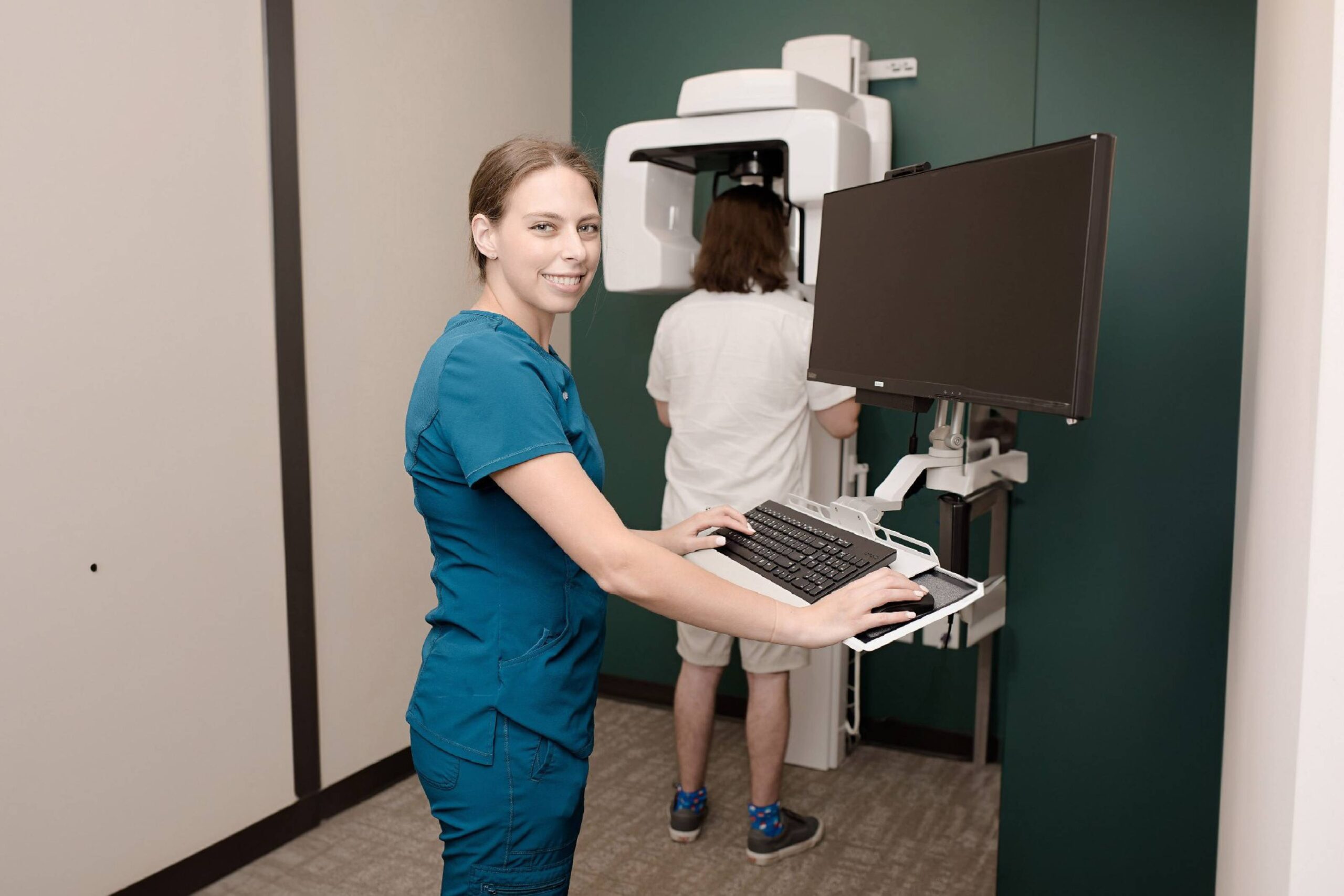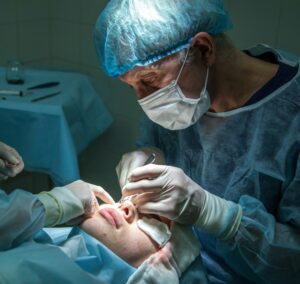Coblation & Uvulectomy
Chronic snoring, sleep apnea, or an enlarged uvula can cause ongoing discomfort, interrupted sleep, and airway obstruction. A Coblation Uvulectomy is a minimally invasive procedure designed to remove or reduce excess tissue at the back of the throat, helping to open the airway and restore natural breathing patterns.
Unlike traditional surgical methods, Coblation uses controlled radiofrequency energy and saline to gently dissolve tissue rather than burn it, resulting in significantly less pain, swelling, and recovery time. This advanced technique allows patients to breathe, sleep, and speak more comfortably—with minimal disruption to daily life.

The Importance of a Clear Airway for Restful Sleep & Health
Chronic snoring or airway obstruction doesn’t just interrupt sleep—it can impact your long-term health, daily focus, and relationships. When the airway is partially blocked by excess tissue such as an enlarged uvula, airflow becomes restricted, leading to snoring, disrupted breathing, and poor oxygen flow throughout the night. Over time, this can contribute to fatigue, irritability, and even cardiovascular stress.
Coblation uvulectomy helps restore normal airflow using a gentle, low-temperature technology that minimizes pain and promotes faster recovery. By opening the airway and reducing tissue obstruction, patients often experience quieter sleep, improved breathing, and better energy levels during the day.
Potential Effects of Untreated Airway Obstruction
Loud, chronic snoring that disturbs sleep
Waking frequently through the night or gasping for air
Persistent sore throat or dry mouth
Morning headaches or daytime fatigue
Difficulty concentrating or mood changes
Elevated blood pressure or cardiovascular strain
Interrupted sleep for partners or family members
Reasons for Airway Obstruction & Chronic Snoring
There are several causes of snoring and sleep-related breathing problems that may make a Coblation Uvulectomy the right solution. In most cases, airway obstruction is caused by excess soft tissue at the back of the throat, often involving the uvula, soft palate, or surrounding muscles. When these tissues relax or become enlarged, airflow becomes restricted and vibrations create the sound of snoring.
Over time, this can interfere with oxygen intake and sleep quality, impacting both physical health and daily well-being. Identifying and treating the specific source of obstruction allows for a more permanent and comfortable solution.
Common Causes of Airway Blockage
Enlarged uvula or soft palate tissue
Chronic inflammation from allergies or infections
Nasal congestion or deviated septum
Excess throat tissue from weight gain or anatomy
Relaxed throat muscles during sleep
Obstructive sleep apnea (OSA)
Enlarged tonsils or adenoids
About Coblation & Uvulectomy
What Is Coblation Uvulectomy?
Coblation Uvulectomy is a minimally invasive treatment used to address chronic snoring, airway obstruction, or sleep apnea caused by excess tissue at the back of the throat. During the procedure, controlled radiofrequency energy combined with saline solution is used to gently remove or reduce tissue—specifically around the uvula and soft palate—without burning or damaging surrounding areas.
This precise, low-heat method results in significantly less pain, bleeding, and swelling than traditional surgical approaches. Patients typically experience improved breathing, quieter sleep, and faster recovery, often returning to normal activities within days.
Types of Coblation Procedures
Coblation Uvulectomy – Focuses on trimming or removing part of the uvula to reduce snoring and open the airway.
Coblation Palatoplasty – Tightens and reshapes soft palate tissue to prevent vibration and collapse during sleep.
Combined Airway Coblation – Treats multiple areas of obstruction, including the uvula, tonsils, and base of tongue, for patients with more severe sleep apnea symptoms.
Coblation Treatment Options
Coblation technology can be tailored to treat different causes of airway obstruction, snoring, or sleep apnea. Each approach uses controlled radiofrequency energy and saline to gently remove or shrink excess tissue, restoring airflow and improving comfort. Your surgeon will determine the best technique based on your unique anatomy and sleep concerns.
Coblation Uvulectomy
Removes or reduces the uvula and nearby soft palate tissue that may block airflow and cause snoring or sleep disturbance.
Coblation Palatoplasty
Reshapes and tightens the soft palate to prevent vibration and tissue collapse during sleep, improving breathing without traditional surgical discomfort.
Maintaining Airway Health After Treatment
Following Coblation Uvulectomy, patients can help maintain long-term results by keeping nasal passages clear, managing allergies, and maintaining a healthy weight. Avoiding smoking and addressing nasal congestion early can prevent recurrence of airway narrowing. Periodic check-ins with your oral surgeon or sleep specialist ensure that your breathing and sleep quality remain optimal for years to come.
